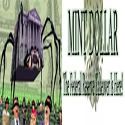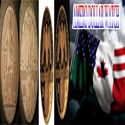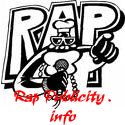Author's note: The statements Cheney made this week during an interview with the Washington Times about his role in approving the waterboarding of three Guantanamo detainees and the so-called "enhanced interrogation" of 33 prisoners was, disturbingly, not covered at all by the mainstream media.
Also published at my web magazine, The Public Record.
Vice President Dick Cheney, in another stunning admission during his campaign to burnish the Bush administration’s legacy, said he personally authorized the “enhanced interrogations” of 33 suspected terrorist detainees and approved the waterboarding of three so-called “high-value” prisoners.
“I signed off on it; others did, as well, too,” Cheney said about the waterboarding, a practice of simulated drowning done by strapping a person to a board, covering the face with a cloth and then pouring water over it, a torture technique dating back at least to the Spanish Inquisition. The victim feels as if he is drowning.
Cheney identified the three waterboarded detainees as al-Qaeda figures Abu Zubaydah, Khalid Sheik Mohammed and al Nashiri. “That's it, those three guys,” Cheney said in an interview with the right-wing Washington Times.
Other detainees at secret CIA prisons and at Guantanamo Bay were subjected to harsh treatment, including being stripped naked, forced into painful stress positions, placed in extremes of heat or cold and prevented from sleeping – actions that international human rights organizations, and previously the U.S. government, have denounced as torture and illegal abuse.
“I thought that it was absolutely the right thing to do,” Cheney said of what he called the “enhanced interrogation” of the detainees. “I thought the [administration’s] legal opinions that were rendered [endorsing the harsh treatment] were sound. I think the techniques were reasonable in terms of what they [the CIA interrogators] were asking to be able to do. And I think it produced the desired result.”
Cheney also took issue with the notion that waterboarding was torture.
“Was it torture? I don't believe it was torture,” Cheney said. “The CIA handled itself, I think, very appropriately. They came to us in the administration, talked to me, talked to others in the administration, about what they felt they needed to do in order to obtain the intelligence that we believe these people were in possession of.”
Other experts, including some military and intelligence interrogators, have disputed Cheney’s claims of success in extracting reliable information through waterboarding and other harsh techniques. Much of the confessed information turned out to be dubious or incorrect.
The First Case
Zubaydah was the first “war on terror” detainee to be subjected to the Bush administration’s waterboarding, according to Pentagon and Justice Department documents, news reports and several books written about the Bush administration’s interrogation methods.
However, according to author Ron Suskind who interviewed CIA and other insiders, Abu Zubaydah was not the "high-value detainee" that the Bush administration had claimed. Rather, Zubaydah was a minor player in the al-Qaeda organization, handling travel for associates and their families, Suskind wrote in his book The One Percent Doctrine.
Nevertheless, Suskind said President George W. Bush became obsessed with Zubaydah and the information he might have about pending terrorist plots against the United States.
"Bush was fixated on how to get Zubaydah to tell us the truth," Suskind wrote. Bush questioned one CIA briefer, "Do some of these harsh methods really work?"
Abu Zubaydah's captors soon discovered that their prisoner was mentally ill and knew nothing about terrorist operations or impending plots. That realization was "echoed at the top of CIA and was, of course, briefed to the President and Vice President," Suskind wrote.
But Bush did not want to "lose face" because he had stated Zubaydah’s importance publicly, according to Suskind.
WARONYOU
Sunday, December 28, 2008
Cheney the torturer
Posted by
Looking 4 Guest Bloggers!
![]()
![]()
Labels: breaking news, Bush, Cheney, Gitmo, gold rush, inflation, money debt, Prisoners, us law, Waterboarding
Subscribe to:
Post Comments (Atom)










0 comments:
Post a Comment